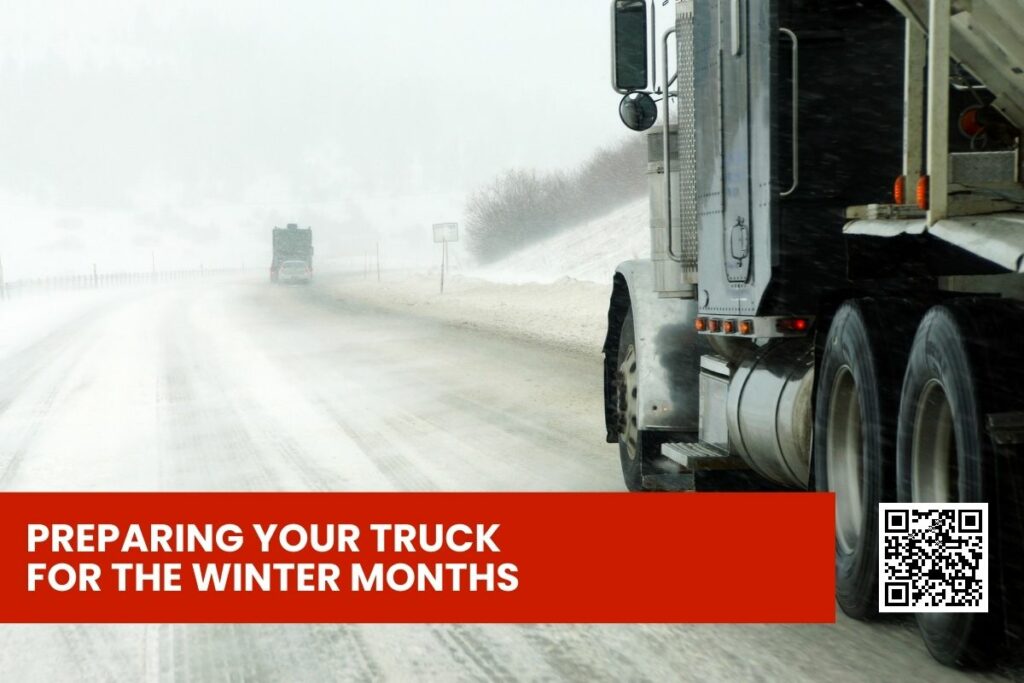Winter can be harsh on trucks, especially for those that have to navigate icy roads and freezing temperatures. To ensure your truck’s safety and performance during the cold months, it’s crucial to prepare it properly. This comprehensive guide will walk you through all the steps to winterize your truck, making it ready to face the challenges of winter.
Introduction
Preparing Your Truck for the Cold
Winter truck maintenance goes beyond just putting on snow tires. It involves a series of steps to ensure your vehicle operates smoothly during freezing conditions. Neglecting these precautions can lead to accidents, breakdowns, and costly repairs.
Winterizing Your Engine
Protecting Your Truck’s Heart
Your engine is the core of your truck, and it needs extra care during winter. Cold temperatures can affect various engine components, so it’s essential to check and maintain them regularly.
Coolant and Antifreeze Checks
Ensure your engine’s cooling system is topped up with a 50/50 mix of coolant and antifreeze. This prevents freezing and protects your engine from extreme temperatures.
Oil and Lubrication
Use winter-grade oil to ensure proper engine lubrication. Cold weather can make oil thicker, leading to increased friction and engine wear.
Battery Health
Cold weather can drain your battery quickly. Check the battery’s health and terminals to prevent starting issues in freezing conditions.
Ensuring Proper Tire Care
Traction Matters
Tires are your truck’s connection to the road, and in winter, they need special attention to maintain traction and stability.
Tire Pressure Checks
Keep your tires at the recommended pressure levels. Cold weather can cause tire pressure to drop, affecting fuel efficiency and handling.
Snow Chains and Winter Tires
Consider equipping your truck with snow chains or investing in winter tires for better grip on icy roads.
Safety First: Brakes and Lights
Stopping and Seeing Clearly
Proper braking and visibility are crucial during winter driving, so check your brakes and lights.
Brake Inspection and Maintenance
Inspect and maintain your brakes to ensure they can handle slippery conditions. Replace worn brake pads or discs.
Lighting Up the Road
Ensure all your lights, including headlights, taillights, and turn signals, are in working order. Clean them regularly to prevent reduced visibility.
Interior Comfort and Safety
Staying Warm and Alert
Your comfort and safety inside the truck are just as important. Maintain a comfortable cabin temperature and prepare for emergencies.
Cabin Heating System
Check your heating system to keep the cabin warm and defrost windows effectively.
Winter Emergency Kit
Pack an emergency kit with essentials like warm clothing, blankets, food, water, and a flashlight.
Dealing with Snow and Ice
Ready for Frosty Challenges
Equip your truck with the necessary tools to handle snow and ice.
Snow Removal Equipment
Carry snow brushes, shovels, and ice scrapers to keep your truck clean and safe.
Ice Prevention and Removal
Use de-icing products on your truck’s surfaces to prevent ice buildup. Keep an ice scraper handy for windows.
Precision Fleet Maintenance: Your Winterization Partner
Get Ready with Professional Assistance
Winterizing your truck can be a complex task, and Precision Fleet Maintenance is here to help you navigate it with ease.
Contact Us for Winter Services
Our team of experts can handle all your winterization needs, from engine checks to tire replacements. Don’t leave your truck’s safety to chance; contact us today to ensure a worry-free winter season.
FAQs (Frequently Asked Questions)
Q1: When is the best time to start winterizing my truck?
A1: It’s best to start preparing your truck for winter at least a month before the cold weather arrives. This allows ample time for thorough inspections and any necessary repairs.
Q2: Do I need to change my oil to a winter-grade oil?
Yes, using winter-grade oil is recommended for cold weather. It ensures proper lubrication and engine performance in freezing temperatures.
Q3: How often should I check my tire pressure during winter?
Check your tire pressure at least once a week during winter. Cold weather can cause pressure fluctuations.
Q4: Are snow chains necessary for all trucks?
Snow chains are especially useful for trucks that frequently travel on icy or mountainous roads. However, they may not be necessary for all trucks, so assess your specific needs.
Q5: What should I include in my winter emergency kit?
Your winter emergency kit should include warm clothing, blankets, non-perishable food, bottled water, a flashlight, a first-aid kit, and any necessary medications.

